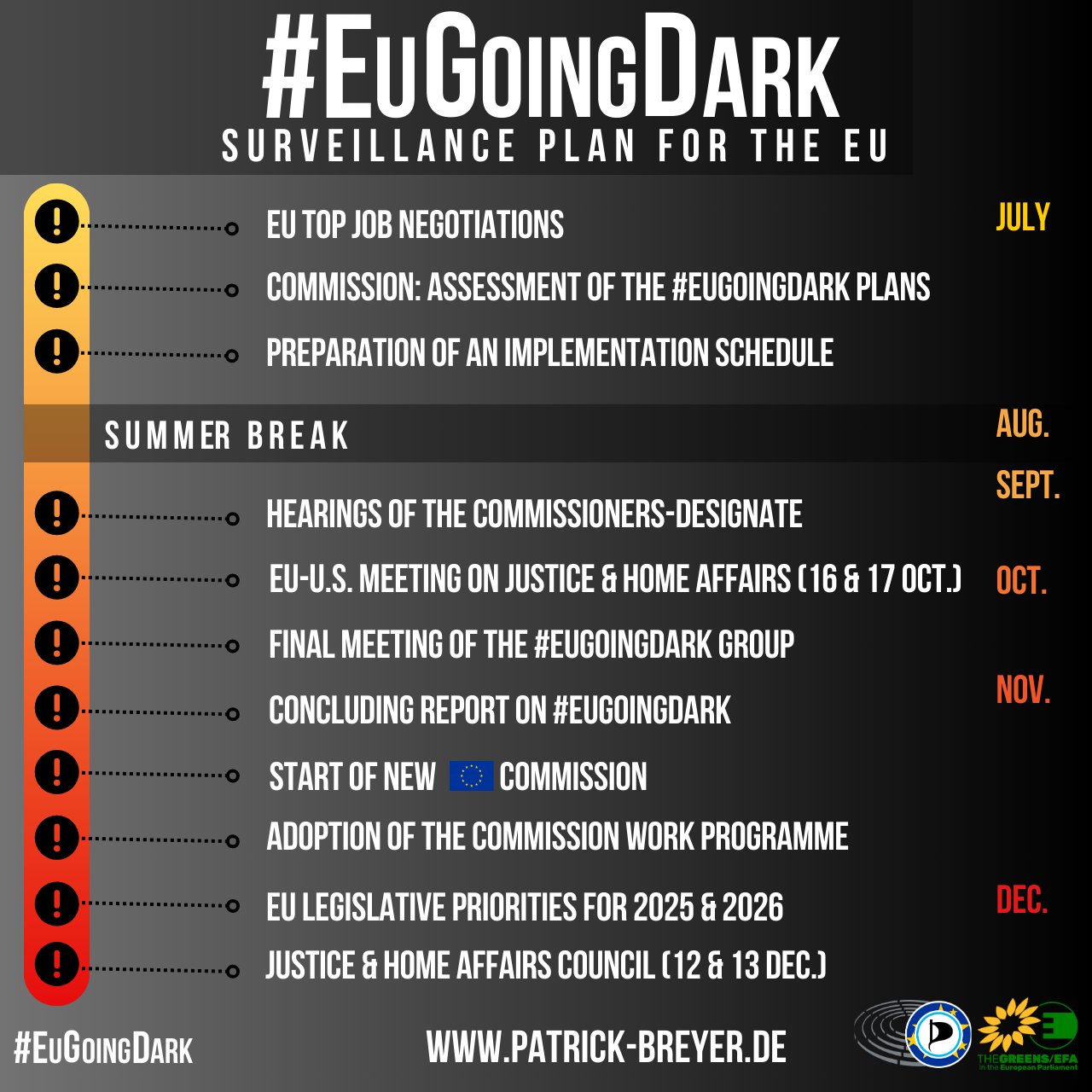Former ECJ judge: EU plans for indiscriminate screening of private messages („chat control“) violate fundamental rights
In search of “child pornography”, the EU wants to have all private digital communications automatically analysed and, in case of a suspicion, reported to the police (so-called chat control). A currently negotiated EU interim regulation is to allow providers of email, chat and messenger services to apply this content analysis, a second legislative proposal scheduled for summer is to oblige all providers to do so.
Now, former judge of the European Court of Justice Prof. Dr. Ninon Colneric has extensively analysed the plans and concludes in a legal assessment that the EU legislative plans on chat control are not in line with the case law of the European Court of Justice and violate the fundamental rights of all EU citizens to respect for privacy, to data protection and to freedom of expression. MEP and civil liberties activist Patrick Breyer (Pirate Party) commissioned the legal assessment.
In a letter Patrick Breyer and other MEPs from his group Greens/EFA are now calling on EU Commissioners Vestager, Jourová Breton, Reynders and Johansson to “focus your efforts on supporting and coordinating targeted investigations and prevention efforts as well as assistance to victims, and refrain from creating or condoning a system of generally and indiscriminately monitoring online activities and relying on private corporations and their error-prone algorithms for detecting alleged criminal activities”.
Breyer comments:
“The unprecedented plan to indiscriminately search all of our private communications using error-prone denunciation machines is doomed and stands no chance in court. Random searches are the wrong approach to protecting children and even endangers them by exposing their intimate self-taken photos and criminalising them in many cases. The right approach and long overdue is, for example, to intensify undercover investigations into child porn rings and reduce the years-long backlog in searching the houses of suspect and screening the data seized.”
Background:
The EU Commission has announced draft legislation before the summer break that would legally oblige providers to generally screen online services for possible child sexual exploitation material and report users to law enforcement authorities. A public consultation on this project is underway, including on whether end-to-end encrypted communications services should be within the scope of the obligation, which would put an end to secure end-to-end encryption.
Yesterday afternoon, the fourth trilogue between Commission, Council and Parliament took place. After the parliamentary majority (except for Greens/EFA and the Left) agreed to the principle of indiscriminately screening private correspondence, the few safeguards originally requested by the Parliament (e.g. maximum error rate of the algorithms, exception for professional secrecy) are gradually being eroded in the current negotiations.
Thousands of false reports
A victim of abuse Alexander Hanff has criticised the plans because indiscriminate screening would deprive victims of channels for confidential counselling, therapy and help. Last year, it became known that US services such as GMail, Facebook Messenger, Outlook.com and X-box have been screening private messages for years and sending thousands of reports to the police, of which, however, 86% falsely accuse innocent users of child pornography, according to the Swiss Federal Police.[1]


Comments